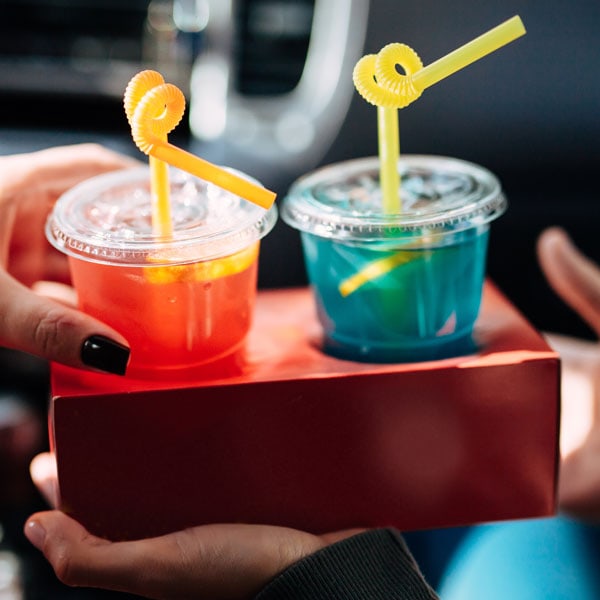**Note: As of June 24, 2021 the bill to legalize cocktails to go in Pennsylvania was approved by the House of Representatives. However, the House removed the Senate’s addition of ready-to-drink canned cocktails that had been added on to the original bill by the Senate in early June. With the House approval, the bill is back in the Senate, and as it is now, without the added measure, would make cocktails to go legal for bars and restaurants. You can learn more about the status of this bill HERE.
Over the past year, many states loosened well-researched, long-standing alcohol safeguard policies to help struggling restaurants, bars and other establishments during the pandemic. While these policy changes may have helped small businesses survive during shutdowns, the powerful alcohol industry is now pushing to roll back safety measures further in the name of profit, even as life returns to normal.
In Pennsylvania, HB 1154 would permanently allow restaurants and taverns to sell cocktails to go. Consideration is being given to amend this bill to include Ready to Drink (RTD) beverages making them permanently available, outside the Pennsylvania Wine and Spirit State stores. RTD beverages are spirit-based mixed drinks in a bottle or can, and typically contain higher alcohol content than beer or wine. The strong taste of alcohol in RTDs and cocktails to go is often masked with sugar and fruity flavors.
Because of this, RTDs — like canned cocktails are especially tantalizing to youth, and data shows they are most popular with young women. The alcohol content hidden under syrupy flavors fuels binge drinking, and the convenient packaging in cans and bottles makes RTDs easier to transport and drink in large quantities. Allowing RTDs to be sold anywhere beer can be sold, such as supermarkets, convenience stores and restaurants, will threaten the safety of Pennsylvania’s youth. Currently, the state stores handle spirit sales to protect the public and particularly our kids.
As the executive director of the Commonwealth Prevention Alliance, I’m strongly opposed to dramatically increasing access to high-alcohol-by-volume beverages like RTDs and cocktails to go. Many of the locations RTDs would be sold are national chains, not mom-and pop-businesses, and the state will lose out on the revenue from this growing sector. Sales in Pennsylvania’s state-run stores go back into our communities, supporting the state police, the state general fund, and alcohol safety education programs.
Despite its sleek marketing and pervasive cultural presence, alcohol is still a drug. And as a drug, it causes many firsthand and secondhand harms. The impacts of alcohol misuse extend into our communities, schools, workplaces, and health systems. Alcohol is involved in more than 95,000 deaths a year, and excessive alcohol consumption may result in injuries, hospitalization, long-term illness or even death. Secondhand harms include being in a traffic accident, being a passenger in a vehicle with a drunk driver, harassment, intimate partner violence, vandalized property, being pushed, hit, or assaulted, family or marital and financial troubles.
Youth ages 18-24 experience these harms more often than older people, according to the National Institute on Alcohol Abuse and Alcoholism, due to high rates of binge drinking during this important life transition period. With 60 counties in Pennsylvania listing youth alcohol use as a top priority for addressing substance misuse, and 38 naming adult alcohol use, it is critical to continue to deploy policy safeguards to protect our young people and all Pennsylvania residents. Increasing the outlets that can sell spirits will be a significant setback for reducing youth alcohol use.
Pennsylvania’s alcohol policies, and those of most states, are based on decades of research and experience on how to reduce the harms of alcohol. While it is essential to lessen the pandemic’s economic fallout for our communities, adding over 10,000 locations across PA to sell liquor-based RTDs and cocktails to go will not accomplish that goal and will just line the pockets of billion-dollar alcohol company executives.
I urge our lawmakers to protect Pennsylvania’s young people and keep our dollars within our communities. Allowing RTD sales outside of state-run stores and cocktails to go puts profits over safety and counteracts the work Pennsylvania communities are doing to reduce the harms of alcohol.
Jeff Hanley is the executive director of the Commonwealth Prevention Alliance.



